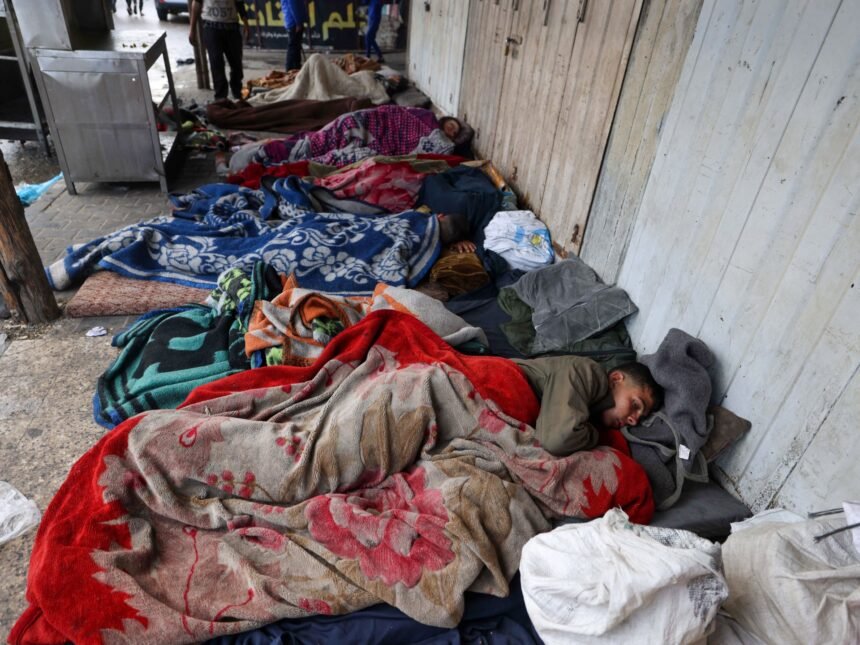Once I was a freshman at Columbia College in 1999, the professor of my Literature Humanities course shared some private data with my class, which was that she slept precisely three hours per evening. I neglect what prompted the disclosure, although I do recollect it was made to not elicit pity however relatively as a matter-of-fact rationalization of the best way issues have been: sleeping greater than three hours an evening merely didn’t enable her enough time to concurrently preserve her professorship and have a tendency to her child.
This, after all, was earlier than the period of smartphones took the phenomenon of rampant sleep deprivation to a different stage. However trendy life has lengthy been characterised by a scarcity of correct sleep – an exercise that occurs to be elementary to life itself.
I personally can’t depend the occasions I’ve woke up at one or two o’clock within the morning to work, unable to banish from my mind the capitalist guilt at partaking in obligatory restorative relaxation relatively than being, you already know, “productive” 24 hours a day.
And but mine is a privileged number of semi-self-imposed sleep deprivation; I’m not, for instance, being denied ample relaxation as a result of I’ve to work three jobs to place meals on the desk for my household.
In accordance with the Facilities for Illness Management and Prevention (CDC), the nationwide public well being company of the USA, roughly one-third of US adults and kids beneath the age of 14 get inadequate sleep, placing them at elevated danger for nervousness, melancholy, coronary heart illness, and a bunch of different probably life-threatening maladies. As per CDC calculations, a full 75 % of US excessive schoolers don’t sleep sufficient.
Whereas the beneficial quantity of sleep for adults is a minimum of seven hours per day, a 2024 Gallup ballot reported that 20 % of US adults have been getting 5 hours or much less – a pattern attributable partly to rising stress ranges among the many inhabitants.
To make certain, it’s simple to really feel wired when your authorities seems extra thinking about sending billions upon billions of {dollars} to Israel to help within the ongoing genocide of Palestinians within the Gaza Strip than in, say, facilitating existence for Individuals by providing healthcare, training, and housing choices that don’t require people to work themselves to loss of life to afford.
Then once more, pervasive stress and nervousness work simply wonderful for these sectors of the for-profit medical institution that make financial institution off of treating such afflictions.
In the meantime, talking of the Gaza Strip, residents of the occupied territory are nicely acquainted with acute sleep deprivation, which is at the moment a part of the Israeli army’s genocidal arsenal for carrying Palestinians down each bodily and psychologically. Not {that a} good evening’s sleep in Gaza was ever actually throughout the realm of chance – even previous to the launch of the all-out genocide in 2023 – given Israel’s decades-long terrorisation of the Strip by way of periodic bombardments, massacres, sonic booms, the ever-present deployment of buzzing drones, and different manoeuvres designed to inflict particular person and collective trauma.
A examine on trauma and sleep disruption in Gaza – performed in November 2024 and revealed this yr within the peer-reviewed journal BMC Psychology – notes that, within the current context of Israel’s round the clock assault, “the act of falling asleep is imbued with existential dread”. The examine quotes one Gaza mom who had already misplaced three of her seven youngsters to Israeli bombings: “Each time I shut my eyes, I see my youngsters in entrance of me, so I’m afraid to sleep.”
After all, Israel’s penchant for killing complete households of their sleep little question exacerbates the concern related to it. The examine observes that youngsters in Gaza have been “stripped of the easy peace that sleep ought to supply, pressured to endure nightmares born from real-life horrors”, whereas overcrowded shelters have rendered the pursuit of shut-eye ever extra elusive.
Moreover, mass pressured displacement within the Gaza Strip “has disadvantaged households of their houses, severing the hyperlink between sleep and safety”.
A latest article within the American Medical Affiliation Journal of Ethics argues that sleep is a human proper that’s integral to human well being – and that its deprivation is torture. It appears we are able to thus go forward and add mass torture to the listing of US-backed Israeli atrocities in Gaza.
Naturally, the US has engaged in loads of do-it-yourself torture through the years, as nicely, together with in opposition to detainees in Guantanamo Bay – the place sleep deprivation was customary apply together with waterboarding, “rectal rehydration”, and different so-called “enhanced interrogation strategies”.
In her 2022 examine of sleep deprivation as a type of torture, revealed by the Maryland Regulation Assessment, Deena N Sharuk cites the case of Mohammed Jawad, an Afghan teenager imprisoned in Guantanamo Bay in 2003 and subjected to what was “known as the Frequent Flyer Program”, whereby detainees have been repeatedly moved between cells with the intention to disrupt their sleep.
In accordance with Sharuk, Jawad was moved “each three hours for fourteen consecutive days, totaling 112 strikes”. The younger man subsequently tried suicide.
Now, the ever-expanding array of immigration detention amenities within the US gives new alternatives to withhold sleep, as victims of the nation’s battle on refuge seekers are crammed into cages illuminated in any respect hours by fluorescent lights.
And whereas a well-rested world would certainly be a extra serene one, such a prospect stays the stuff of desires.
The views expressed on this article are the creator’s personal and don’t essentially replicate Al Jazeera’s editorial stance.
